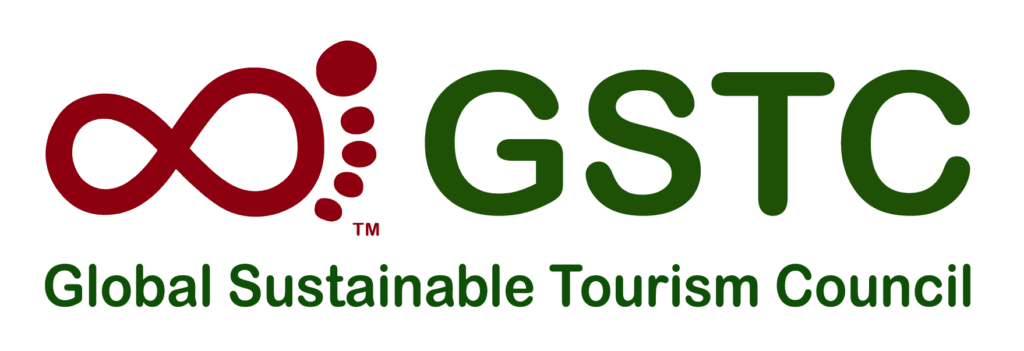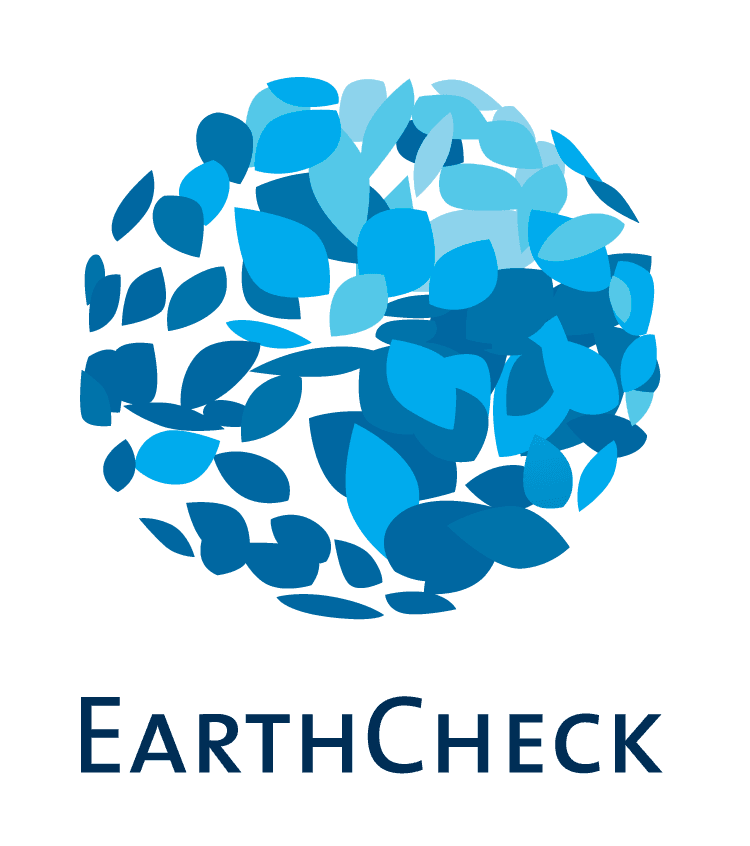What is an eco-label, and what does it tell?
Eco-labels and certifications are given to products and services that are deemed to have fewer impacts on the environment than similar products and, therefore, more environmentally preferable. The goal of eco-labeling initiatives is to promote products and services that are less damaging to the environment. Eco-labeling in the hospitality industry helps customers understand which sustainability-focused practices hotels have implemented in their daily operations. According to Booking.com’s Sustainable Travel Report 2019, 70% of global travelers say they would be more likely to book an accommodation knowing it is environmentally friendly, whether they are looking for a more sustainable stay or not.
What makes an eco-label trustworthy?
The eco-label jungle may confuse many travelers and it can be hard to distinguish the reliable eco-labels from the ones used for simply greenwashing. The term greenwashing refers to when a company pretends to be more eco-friendly than it really is through misleading marketing.
For eco-labels to be reliable, they must be awarded by independent third-party certifications with experts inspecting the hotels. The criteria should be public and accessible to consumers to provide consumers with the needed transparency. Ideally, an eco-label should consider all dimensions of sustainability. In addition to environmental protection, this, for example, also includes social standards such as working conditions in the hotel and cultural and economic aspects. The destination and locals should also benefit from tourism and play an active role in shaping it.
The Global Sustainable Tourism Council (GSTC)

A fundamental question for travelers looking for trustworthy eco-labels in the tourism industry is whether or not the eco-label or certification has been acknowledged or recognized by the Global Sustainable Tourism Council (GSTC). The GSTC, manages global standards for travel and tourism and acts as the international accreditation body for sustainable-oriented tourism certification. This means that the GSTC does not certify but accredits other certification bodies who then certify hotels throughout the world. The GSTC verifies that the certification processes of the accredited Certification Bodies happen in a competent and neutral manner.
The Global Sustainable Tourism Council has established the GSTC Criteria. The criteria are the result of a worldwide effort to develop a common language about sustainability in tourism. They are arranged in four pillars: (A) Sustainable management; (B) Socio-economic impacts; (C) Cultural impacts; and (D) Environmental impacts. Because tourism destinations each have their own culture, environment, customs, and laws, the criteria are designed to be adapted to local conditions and supplemented by additional criteria for the specific location and activity.
Trustworthy eco-labels and certifications in the hospitality industry
Here are 13 reliable and GSTC-recognized eco-labels and certifications in the market that EcoHotels.com collaborates with. What makes them so good? Keep reading!
Green Key Certification

Green Key is a voluntary eco-label for hotels, hostels, campsites, holiday parks, and small accommodations, as well as conference centers, attractions, and restaurants. The Green Key award is based on compliance with strict criteria in the areas of environmental management (water conservation, energy efficiency, waste management, cleaning, etc.) and sustainability education (staff, guests, suppliers, etc.). Compliance with the criteria is confirmed through a rigorous application process and verified at on-site audits. The award is valid for one year at a time. Currently, more than 3,200 establishments in 60 countries are Green Key awarded. The program is managed by the international charity the Foundation for Environmental Education. Green Key is endorsed by the World Tourism Organization, and its hotel criteria are recognized by the Global Sustainable Tourism Council.
Green Globe Certification

The Green Globe International Standard has been developed over decades of research and development. It is the original Standard that all tourism eco-labels are based on. The Green Globe certification program is a structured assessment of the sustainability-oriented performance of travel and tourism businesses. It is based on internationally accepted criteria developed during the 15 years of the Green Globe program. Green Globe is active in harmonizing with other established sustainability-focused certification programs around the world. The process of harmonization contributes to maintaining core criteria. At the same time, it addresses regional issues through the adoption of locally developed standards. To earn the Green Globe certificate, a hotel must meet rigorous criteria.
Travelife certification

Travelife is an internationally recognized accommodation certification. It was founded in 2007 in response to a growing global understanding that businesses needed to take a more proactive role in operating responsibly. They want to address climate change and conservation. The Travellife certificate contains a range of criteria that assess accommodation performance in the areas. These areas include human rights and health, labor practices, community engagement, and environmental impacts, such as energy efficiency, as well as water and waste management. A global team of independent auditors visits every property to conduct an audit against the Travelife Standard.
EarthCheck Partner

EarthCheck is the world’s leading scientific and environmental benchmarking, certification, and advisory group for the travel and tourism industry. For over 30 years, they have worked with leading research centers and universities around the world to address sustainability and climate change issues connected to tourism destinations, communities, and enterprises. EarthCheck believes that the planet deserves more than half measure. Using a science-based approach, they help travel and tourism organizations increase efficiencies, maximize guest experience, and minimize their environmental footprint.
BiosphereTourism Partner

BiosphereTourism Partner is a full management and positioning system for a destination, company, or tourism product through accompaniment and advice on continuous improvement towards the “Horizon 2030”. Through the fulfillment of a series of requirements (directed towards climate change, environmental, social, economic, and cultural issues), it offers the opportunity to entities in the sector to design products and services. This is done with a new model of non-aggressive tourism, satisfying the current needs of customers and users without compromising future generations.
The Biosphere Methodology translates the 17 Sustainable Development Goals (SDGs) of the 2030 Agenda of the United Nations. These were sponsored by UNESCO and UNWTO, to the tourism industry. This certification guarantees an adequate long-term balance between the economic, socio-cultural, and environmental dimensions of a destination. It reports significant benefits for the entity itself, society, and the environment. Biosphere Responsible Tourism Certification recently achieved GSTC Approved Status for their Destination Standards.
Good Travel Seal

The Good Travel Seal is a sustainability-focused certification program. It was introduced by the Good Travel Guide as a response to COVID-19, in 2020. It is specially created to serve small, family-run enterprises. The program offers a simplified version of the GSTC Standard, tailor-made for B&Bs, small hotels, hostels, guesthouses, and more. This step-in program also prepares medium-sized hotels for GSTC-Recognised certification. A unique benefit of the Seal is its transparency. A publicly available scorecard in the Good Travel Guide (pilot Bonaire) shows customers exactly in which aspects hotels perform well and in which they do not.
The Seal has a free add-on Virus-Aware Seal to enable businesses to be certified for observing all measures against COVID-19 and other virus contamination. Hotels awarded the Good Travel Sea certificate have completed a report that indicates to what extent their business implements measures for responsible tourism. A team of experts evaluates this. The result will be a score, and if sufficient, the business will be awarded the Good Travel Seal certificate.
(Please note that the Good Travel Seal hasn’t been recognized by the GSTC yet).
The “Green Star Hotel” Program – Egypt’s Green Certification Program

The Green Star Hotel (GSH) is a national green certification and capacity-building program. It is managed by the Egyptian Hotel Association (EHA) under the patronage of the Egyptian Ministry of Tourism. The GSH program offers an opportunity for hotels operating in Egypt to be internationally recognized for raising their environmental performance and social standards. All while reducing their operational costs. A team of certified local and international experts guides interested hotels through a sequence of training and information support sessions leading to field audits to ensure compliance with the program standards prior to granting the GSH certification.
GreenSign / InfraCert

The GreenSign seal is awarded by the InfraCert – Institute for Sustainable Development in the Hotel Industry. The certification is specially developed for the hotel industry. With the GreenSign seal, InfraCert offers hotels an integrated and sophisticated test system that structures, evaluates, and documents ecological, social, and economic aspects of hotel management in over 90 criteria. The hotels are given the opportunity to further expand their sustainability-oriented activities and to efficiently optimize their operating processes. In Germany, GreenSign is the market leader as a sustainability-focused seal for hotels. The seal has also established itself internationally with over 250 certified hotels in 14 countries.
Thank you for reading!
Remember, being a responsible traveler involves choosing responsible operators, supporting local communities, and minimizing your environmental impact wherever you travel. Always research and prioritize destinations, operators, and hotels that prioritize conservation.
Did you like this blog post? Read more here.

1 comment
I was recommended this website by my cousin. I am not sure whether this post is written by him as nobody
else know such detailed about my difficulty.
You are incredible! Thanks!
Comments are closed.